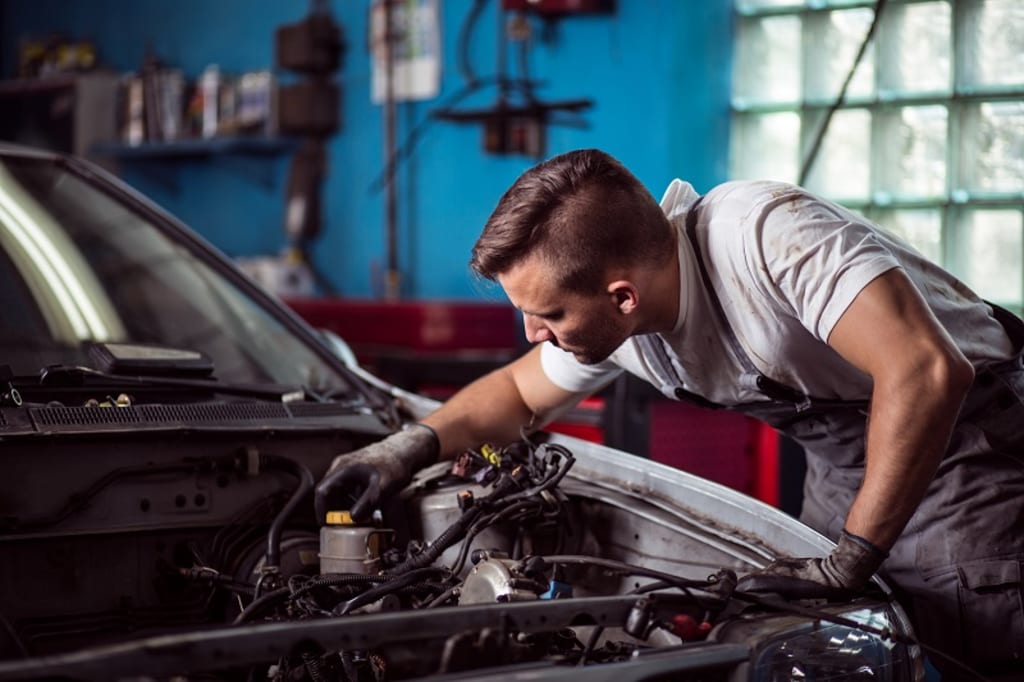4 Tips to Take Good Care of Your Car
Basic car maintenance plays a big role in keeping your car on the road for a long time.

Although everyone is bantering about how they don’t make cars as well as they used to, staying on top of minor issues can help you avoid huge expenses, at least until the time comes to re-sell. Here are the most essential car maintenance tips.
Keep the windscreen clean.
A dirty windscreen sticky with tree sap, and splattered bugs isn't only a safety hazard, but can also damage the wiper blades, should you try to clean it in an emergency. Don't make a big fuss out of stopping now and then at the petrol station to give it a warm soak and wipe with a squeegee. This is especially important during longer tours, like road trips, when you often don't have time for a full wash, and the front of your car gets literally littered by insect carcasses every 100 kilometres. Soak the windscreen, and pull the squeegee tightly form the middle of the windscreen to the sides, picking out the runoff streaks by pulling it from top to bottom.
Check the tyre pressure.
Also, use the time you stop for fuel to make sure your tyres are inflated properly. When running on full pressure, your tyres will keep you safe, and even save you a bit of cash. Improperly inflated tyres don't handle, or stop the way they should, and even have a shorter lifespan. Your car's recommended tyre pressure is usually found on a sticker inside the driver's side door. Engineers behind your car have spent a long time figuring out that number, so make sure you stick to it. For an accurate reading, always check tyre pressure when your tyres are cold. Regardless of the tyre brand, always keep the pressure at the recommended level. The PSI value found on the tyre sides is the maximum safe pressure, not the ideal one.
Clean the car inside and outside.
Even if your car sits in a garage overnight, it’s exposed to sun, salt, grease, grime, acid rain, smog, tree sap, and pesky flying insects every day. Just if that’s not enough, remember all that acidic bird poop that can damage the paint. While none of these will damage your car within hours or days, if you fail to wash it for longer periods, its visual appeal will suffer, along with the potential resale value. Location and climate are the two main factors in determining how often you should wash the car. If you live in an area with a lot of pollution, dust or sand, two to three times in a month will be enough. Even if you live in a relatively dry and dust free area, like coastal Australia, it's recommended to take your car to a thorough car detailing in Sydney once a year. Apart from cleaning it inside out like the pros they are, you can have them apply polymer paint protection film that not only safeguards your paint from contamination and UV rays, but also protects it from stone chips, and small scratches.
Top off oil as needed.
Apart from lubricating the moving parts of your car’s engine, motor oil transfers the heat away from the combustion cycle, and traps the combustion by-products. The most important thing about oil is checking it regularly, and topping it off with the right specification. While your car owner’s manual probably recommends you do it at every fill-up, every other will be enough. However, you should check the oil before you head out in the morning, while the engine is cold. Make sure your car is on level ground so you get an accurate reading. Remove the dipstick from the oil funnel—it typically has a yellow handle with a ring for easier extraction. Wipe it clean with a paper towel, and insert it back all the way in. Pull the dipstick out again, and hold it pointing down. Dipsticks usually have two marks on the bottom part, either two holes, notches or circles, and if the oil level is between those marks, your level is good.
Apart from these essential maintenance tasks, your car requires some that are performed less frequently, but are also vital for your ride's long and happy life. These include tyre rotations, brake and spark plug inspections, battery checks, etc. Make sure you follow the maintenance schedule suggested in your car's owner's manual, and take it to a garage on time, and let professional mechanics handle those details.






Comments
There are no comments for this story
Be the first to respond and start the conversation.